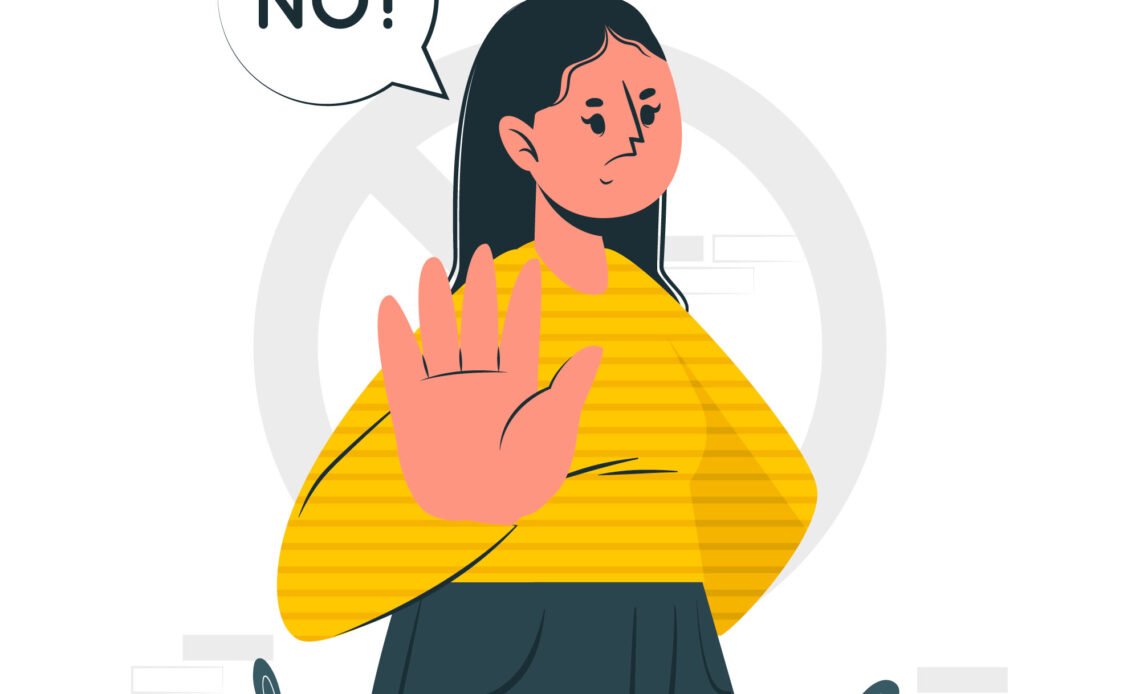
First published in The Hindu, 03 Feb 2024
Being amiable, adaptable and accommodating are prosocial attributes that are generally positively regarded. But like all good things, if they’re taken too far, they can be detrimental to a person’s wellbeing. Though we may strive to get along with others, that does not imply that we get trodden over. Drawing your boundaries and learning to say ‘no’ are important socioemotional skills we need to acquire. If you tend to be a people-pleaser at the cost of your own wellbeing, it’s time you learn to be a naysayer as well.
In an article in Psyche, writer Shayla Love sagely notes that if you try pleasing everybody, you may end up pleasing nobody, including yourself. If you’re a habitual people-pleaser, you may be putting your own relationships and wellbeing at risk. If a friend asks you to run an errand, you may arrive late for a class that you enjoy immensely and have to contend with the professor’s disapproval. When you’re always giving in to demands of others, you may end up with a “vanishing self,” an inability to pinpoint your own “desires and needs.”
How to say ‘no’
Love provides the following tips for learning to say ‘no.’ Rather than just saying ‘yes’ automatically, pause every time you receive a request, whether banal or significant. Whenever possible, buy time before giving in. It could be something as trivial as a peer asking for your pen. Earlier, you would simply lend it, even if you didn’t have another one and then scramble around to borrow one. So, instead of just loaning your pen, pause and say, “One sec.” Then look into your bag and say, “Sorry, I have only one.”
Of course, for more significant demands, that would take a considerable amount of time or effort on your part, it’s perfectly legit to say, “I’ll get back to you on that.” As you ponder over your decision, consider the pros and cons of giving in to the request. Do you have the bandwidth to take on an additional load? What are the consequences of your saying yes? Will you be setting up further expectations from the person?
If you decide to agree to the request, then consider your reasons for doing so. If you’re saying yes only to win the approval of others, then Love thinks you might be saying yes too easily and too often. Additionally, you may consider what will happen if you say no. Again, if you’re afraid of burning bridges with another person or worried about how you’ll be perceived, then you’re possibly agreeing due to “fear and anxiety” rather than a genuine desire to help.
You may also start noticing how other people say no and the consequences of their refusals. If a friend says she doesn’t watch movies in theatres or a professor says they can’t give you an extension, you may feel miffed initially. But does that mean you dislike or despise them? Once you realize that declining requests is rather common, it takes off some of the sting of saying ‘no.’
In his bestselling book, Give and Take, Adam Grant reminds us that the most successful people in the workplace tend to be givers, or those who do favours for others without necessarily expecting anything in return. However, his findings also reveal that the least successful engineers, doctors and salespersons tend to be givers. So, Grant cautions us against becoming “pushovers and doormats,” by simply acceding to every request.
Grant quotes Abraham Lincoln, a very successful giver no doubt, who recognized his own vulnerability: “If I have one vice and I can call it nothing else—it is not to be able to say no!” Perhaps, all givers may take note of Lincoln’s words and learn to draw your boundaries by simply saying, ‘No.’
(The writer is the author of Zero Limits: Things Every 20-Something Should Know & blogs at www.arunasankaranarayanan.com.)

